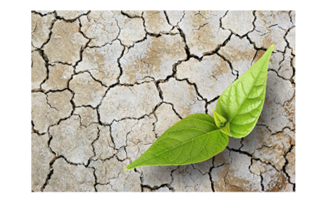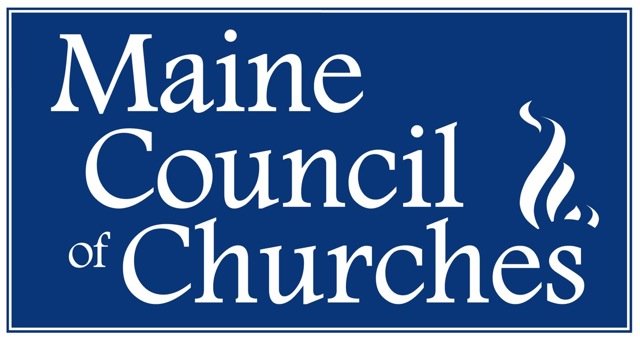A Way in the Wilderness

Lent 5 2025
We started Lent in the wilderness, and here we are, 40 days later, in the wilderness again.
And we’ve come to the final W’s of our Lent of Wellbeing and Witness: Way and Wilderness.*
Biblical “wilderness” is a dry, desolate, and uninhabitable wasteland between Egypt and Canaan, an empty space between the borders of peopled places, where the Hebrew people wandered for forty years after their Exodus from Egypt and before their arrival in the Promised Land. This wilderness offered no protection or safety from potential enemies. There, you could die of thirst or wind up as lunch for jackals. Or both.
After the Israelites left Egypt, they crossed into the wilderness—a frightening, uncertain, and dry land, without food, with little water. It wasn’t even as survivable as their meager existence had been back in Egypt. In the wilderness, they won’t drown under the weight of empire. But starving or dying from thirst doesn’t exactly seem appealing either.
And God’s word sounds:
Thus says the Lord, who makes a way in the sea, a path in the mighty waters, who brings out [Egyptian] chariot and horse, army and warrior; they lie down, they cannot rise, they are extinguished, quenched like a wick.
Do not remember the former things or consider the things of old. I am about to do a new thing; now it springs forth, do you not perceive it? I will make a way in the wilderness and rivers in the desert.
Isaiah 43: 16-19
A new thing. In the wilderness? In the desert? Something can spring forth from this desolation?
The oppressed, once dependent on their enslavers for food and their very existence, were now freed from servitude to the Empire, and set out on a journey through the wilderness where they discover their own courage, resourcefulness, and calling. Of course, they made mistakes. It is hard to live beyond empire. Entering the wilderness disorients even the most steady of us. But by wandering, they learn. They learn the law. They learn sabbath. They learn interdependence on God and one another. They are transformed — in both vision and vocation.
Rabbi Jonathan Sacks describes it this way:
The way to the Holy Land lies through the wilderness. It is there that the Israelites learned what it is to build a society that will be the anti-type of Egypt, not an empire built on power, but a society of individuals of equal dignity under the sovereignty of God.
The Christian season of Lent draws inspiration from this Jewish experience — forty years of wilderness translates into our 40 days. The Exodus and its distant descendant, Christian Lent, are journeys through desolation and survival in the wilderness made possible through the power, sustenance, and protection offered by God.
God’s word in the wilderness, then and now, is: “I will make a way.”
Today, thousands of years later, we find ourselves in the wilderness—and not just the metaphorical wilderness of Lent. Today, in the United States, we are in a dry and desolate place that’s frightening and uncertain. And there’s not a Promised Land in sight.
But maybe the wilderness is where we need to be. Between the old and new. Between a drowning army and springs in the desert. Maybe this is where we can finally hear the good news of God’s new thing.
Or, as the Apostle Paul wrote from a Roman prison, “This one thing I do: forgetting what lies behind and straining forward to what lies ahead, I press on toward the goal: the prize of the heavenly call of God in Christ Jesus.”
That’s good advice for surviving in the wilderness — when you find yourself between Empire and Promised Land. Keep your eyes on the prize, as African Americans have long reminded us. Eyes on the prize.
There is a way out of this wilderness we’re in, friends. It just isn’t entirely clear yet. Luckily, we do not make that way on our own.
But rest assured, there is a way. So hold on. Hold on to God. Hold on to each other. Hold on.
As that old folk song, “Keep Your Eyes On the Prize,” goes:
Now only thing I did was wrong stayin’ in the wilderness too long
Keep your eyes on the prize, hold on
The only thing we did was right was the day we started to fight
Keep your eyes on the prize, hold on
Hold on, hold on, keep your eyes on the prize, hold on
Keep that song in your heart as you find your way through the last Lenten week in the wilderness, as you set your face to Jerusalem and journey through Holy Week. And even though after Easter we’ll still find ourselves in a frightening and uncertain landscape of chaos, terror, and oppression, keep your eyes on the prize and hold on. Do what’s right and start to fight. And trust the prophet’s assurance that God is doing a new thing and it is springing forth.
(Click here to listen to a recording of Pete Seeger singing “Keep Your Eyes On the Prize.”)
*A reminder to subscribe to “The Cottage” by Diana Butler Bass for her Lenten series, A Lent of Wellbeing and Witness on which our Lenten series has been based: https://dianabutlerbass.com/the-cottage/

